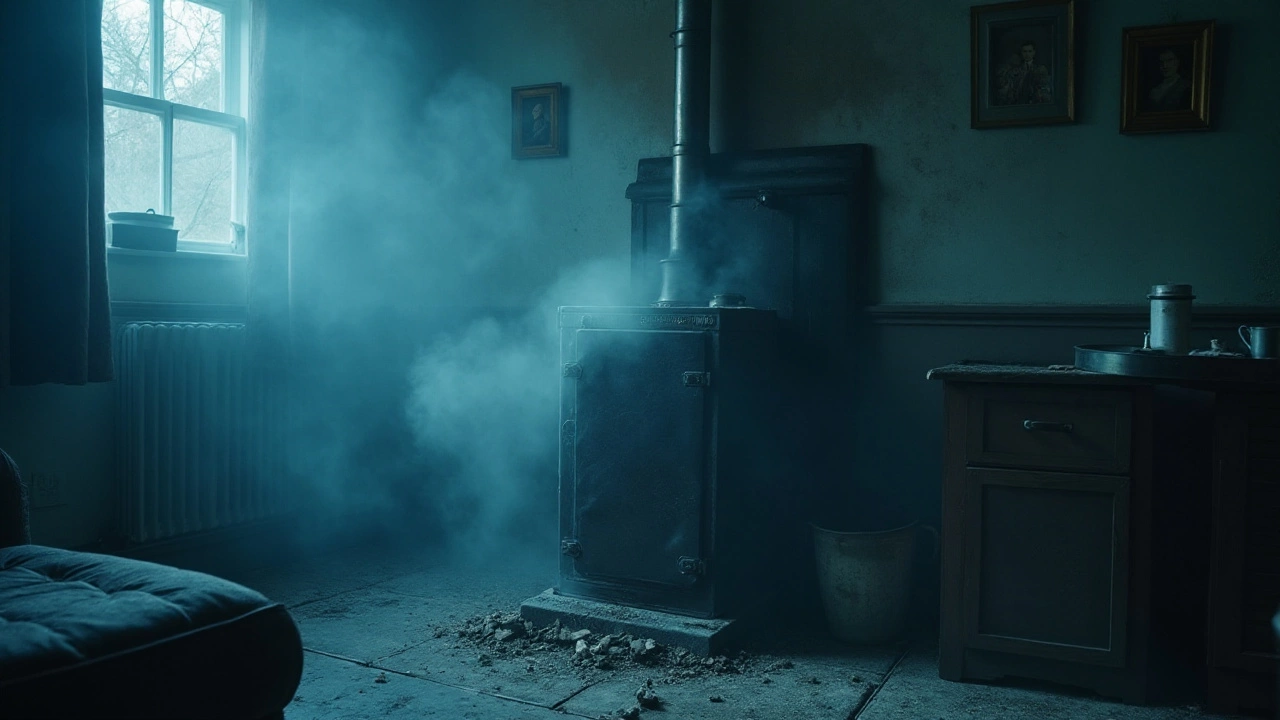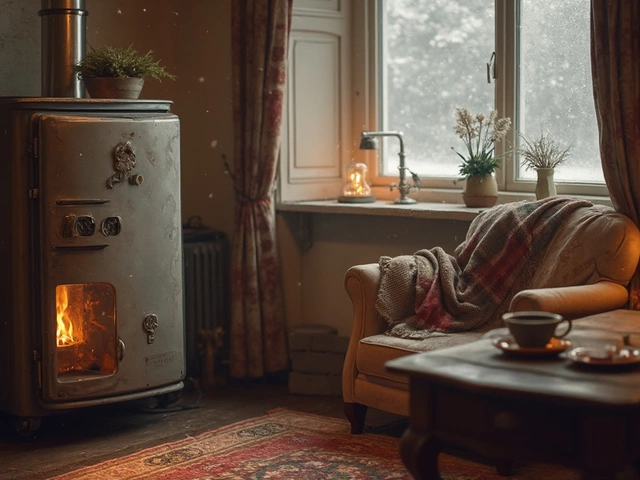Picture this: it's the depth of winter, and your boiler is the unsung hero keeping you warm. But what if this critical piece of equipment starts coughing and spluttering, deciding to take an unscheduled break? Boiler servicing isn't just a fancy term thrown around by maintenance companies—it’s a crucial practice that ensures your boiler runs smoothly and safely.
Servicing your boiler not only prolongs its lifespan but prevents malfunctions that could leave you out in the cold. Skipping these check-ups could lead to higher energy bills, inefficient heating, and, worst of all, safety hazards like carbon monoxide leaks. So, let's dive into what happens when your boiler goes too long without a professional check-up, and learn why investing in annual service is a smart, wallet-friendly decision.
- Dangers of Skipping Boiler Maintenance
- Impact on Efficiency and Bills
- Signs Your Boiler Needs Attention
- Tips for Regular Boiler Care
Dangers of Skipping Boiler Maintenance
Imagine your boiler as the heart of your home’s heating system, pumping warmth to every corner. Without regular boiler service, you might leave it vulnerable to several issues that can escalate into costly or dangerous situations.
Increased Risk of Breakdowns
A neglected boiler is more prone to breakdowns. Much like ignoring a vehicle's routine oil changes, skipping boiler maintenance increases wear and tear, leading to unexpected failures. These breakdowns typically happen at the worst times—usually when the system is under heavy demand during winter.
Safety Concerns
One of the most serious risks of not servicing your boiler is the potential for carbon monoxide leaks. Carbon monoxide is an odorless, colorless gas that can be deadly if inhaled over time. Regular servicing includes checks that ensure your boiler is venting properly and not leaking carbon monoxide into your home.
Reduced Efficiency
Neglecting your boiler could also mean it struggles to maintain efficiency. Over time, components can wear out or become clogged, reducing the system’s ability to heat your home effectively. This inefficiency results in higher heating bills, as the system works harder to achieve the desired temperature.
Financial Implications
While regular boiler maintenance requires an upfront cost, it can prevent larger expenses down the road. Emergency repair work or even total system replacements can be exponentially more expensive than annual servicing. Additionally, an inefficient boiler increases energy consumption, driving up utility costs.
Environmental Impact
An inefficient boiler not only hits your pocket but also has a broader environmental impact. A boiler in poor condition burns more fuel for the same amount of heat output, contributing to unnecessary emissions. Regular maintenance ensures your system runs cleanly and efficiently, minimizing your carbon footprint.
In essence, by skipping regular boiler checks, homeowners gamble with safety, comfort, and finances. Routine service appointments are a small investment compared to the peace of mind and efficiency they return.
Impact on Efficiency and Bills
It's amazing how a little maintenance can make a huge difference in your energy bills. A well-serviced boiler operates efficiently, using less energy to provide the same level of comfort. Neglecting your boiler's yearly check-up, on the other hand, can cause inefficiencies, leading to a slow creep of rising energy costs. In fact, even small issues such as dirty components or a slight misalignment can escalate, consuming more fuel and costing you more.
Imagine your heating system as a car. Just like you wouldn't drive thousands of miles without an oil change, a boiler shouldn't run year after year without professional love and attention. Servicing ensures that every part works as it should, minimizing breakdowns and prolonging the life of your boiler. An efficient boiler doesn’t just save you money; it’s better for the environment too, reducing your household’s carbon footprint.
Understanding the Costs
Consider this: a boiler that hasn’t been regularly serviced could be operating at just 60% efficiency. That means for every $100 you spend on your energy bill, $40 could be going to waste. In contrast, a well-maintained boiler operates at close to 90% efficiency, significantly cutting down on unnecessary expenditure.
Here’s a small breakdown of potential savings:
| Boiler Condition | Efficiency Rate | Potential Annual Savings |
|---|---|---|
| Unserviced | 60% | $0 |
| Regularly Serviced | 90% | Up to $400 |
Trouble Signs and Cost Implications
A sudden spike in energy bills can be an early sign that your boiler is not performing at its best. Other tell-tale signs could include taking longer to heat your home or inconsistent water temperatures. Procrastination in resolving these issues can lead to more severe and costly repairs down the line.
Maximizing boiler efficiency isn't just about ticking a box on a maintenance checklist. It's about ensuring your home remains a cozy haven without burning through your finances, especially when the cold weather hits its peak. Regular boiler maintenance acts as a shield, helping you avoid the shock of an unexpected repair bill and the inconvenience of a breakdown.

Signs Your Boiler Needs Attention
Your boiler is the heart of your home’s heating system, working quietly in the background to keep you warm. But like any hardworking device, it has its limits. When it starts making noise or showing unusual behavior, it's sending out a plea for help. Ignoring these warning signs could lead to inconvenient breakdowns or costly repairs.
Unusual Noises
A boiler in distress often speaks up. If you hear banging, whistling, or gurgling noises, these could indicate anything from trapped air in the system to a more serious pump failure. A steady hum is normal, but sudden, loud sounds should be checked by a professional.
Fluctuating Water Temperature
If your shower goes from scalding to freezing in seconds, this inconsistency indicates an issue with your boiler’s thermostat or circulation system. This is more than a minor irritation; it affects your energy bills and comfort levels.
Pilot Light Problems
A healthy pilot light should burn blue. If yours flickers to yellow or orange, it could signal carbon monoxide production—a potentially deadly hazard. Any change in color should be addressed immediately for the safety of everyone at home.
Odd Smells
A faint smell might suggest a gas leak, while a burning smell could mean overheating components. Neither should be ignored, as they can pose serious risks to your household.
Rising Energy Bills
Has your energy bill suddenly spiked without a clear reason? Reduced boiler efficiency can cause this, indicating the unit is overworking or not heating properly.
In realizing these signs, you not only prevent an unexpected boiler breakdown in the middle of a frosty night, but you also maintain the efficiency of your home heating system. If you spot any of these signs, don’t delay in seeking out a professional boiler repair to restore your peace of mind and warmth.
Tips for Regular Boiler Care
Maintaining your boiler isn’t just about picking up the phone once a year for a service. There's an array of tasks and checks you can perform to ensure your boiler remains reliable throughout the seasons.
1. Schedule Annual Professional Services
The backbone of regular boiler maintenance is an annual check-up by a certified engineer. This inspection not only spotlights any emerging issues but is often a requirement to keep warranty conditions valid. During these check-ups, engineers will meticulously examine the components to prevent any hidden surprises.
"Regular servicing keeps your heating systems efficient and reduces heating bills by up to 15%," says the Energy Saving Trust.
2. Perform Routine Visual Inspections
Between services, it's wise to keep an eye on your boiler. Look for visible signs of wear or leakage, and ensure that the pilot light is a bright blue. Any yellow flame or soot marks around the appliance should be a red flag.
Check for Sounds and Smells
If strange noises occur or a funky smell arises, it might indicate a deeper problem that requires immediate professional attention. These could be early signs of parts wearing out.
3. Bleed Your Radiators
A common issue with heating systems is trapped air in the radiators, which makes them less efficient. Bleeding radiators seasonally helps maintain perfect heating performance.
- Turn off your heating, allowing radiators to cool.
- Use a radiator key to open the valve at the top, listen for a hissing sound as air escapes.
- Close the valve quickly once water starts to drip, catching it with a cloth.
4. Monitor the Pressure
A boiler that struggles to maintain proper pressure won’t work efficiently. Regularly check the boiler’s pressure gauge to ensure it’s within the recommended range—commonly between 1 and 2 bars.
5. Keep Surrounding Area Clear
Boilers need space to breathe. Ensure there is ample ventilation around the unit, and that the area is free of clutter and dust, which could affect its operation.
6. Install a Carbon Monoxide Detector
A crucial safety measure is to install a carbon monoxide detector in your home. It adds an extra layer of security, alerting you to leaks of this deadly gas—more common with neglected boilers.
By following these straightforward steps, you’re investing in the longevity and reliability of your heating system. A diligent approach to boiler care ultimately saves you from the headaches of unexpected breakdowns and ensures a warm, safe home environment.




